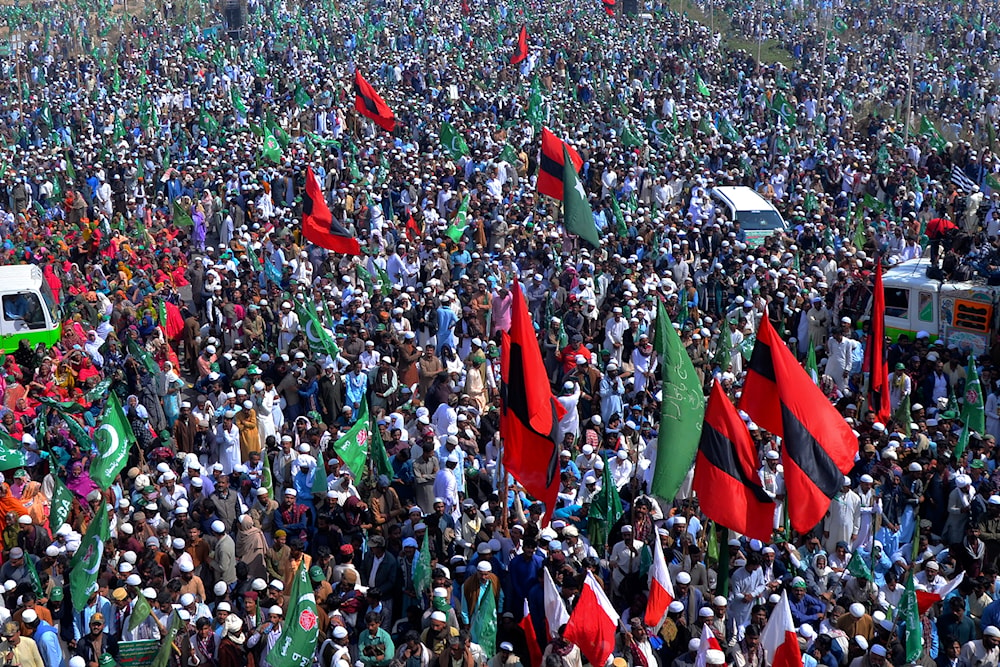Pakistan bureaucrat admits to election rigging, to surrender to police
Liaqat Ali Chattha's statement implicates the country's top judge and the head of the election commission, who rejected the claims but said they would "hold an inquiry".
-

attend a rally to protest against what they call vote-rigging in some constituencies in the parliamentary elections, on the outskirts of Hyderabad, Pakistan, Friday, Feb. 16, 2024 (AP)
Pakistan witnessed a revelation on Saturday after senior bureaucrat Liaqat Ali Chattha confessed that he helped rig the country's elections. The commissioner of the city of Rawalpindi, where the headquarters of Pakistan's military is located, announced that he would surrender himself to the police.
Chattha, before resigning from his position, said he supervised the rigging of votes and "converted the losers into winners, reversing margins of 70,000 votes in 13 national assembly seats," he relayed to reporters, adding: "For committing such a heinous crime, I will hand myself over to the police".
His statement implicated the country's top judge and the head of the election commission, who rejected the claims but said they would "hold an inquiry".
Read next: US questions Pakistan election process amid Imran Khan allies lead
The leading advocacy group, the Human Rights Commission of Pakistan, said the announcement of the "involvement of the state bureaucracy in rigging in Pakistan is beginning to be exposed" and brings corruption to light.
To rig or not to rig
Just a few days ago, a coalition comprising the Pakistan Muslim League-Nawaz (PML-N) and the Pakistan People’s Party (PPP) reached an agreement to establish the next government of Pakistan, effectively sidelining the party of former Prime Minister Imran Khan despite its victory in the national election.
During a press conference held in Islamabad, it was confirmed that the rival parties, along with two smaller coalition partners, have agreed to form a united government allegedly to steer Pakistan out of its current challenges. The President of PML-N, Shehbaz Sharif, was announced as their sole nominee for the position of prime minister.
Earlier this week, Pakistani police issued a warning of cracking down on what they called "illegal gatherings" after Khan's Tehreek-e-Insaf (PTI) party urged supporters to take to the streets peacefully following the elections.
Independent candidates garnered the most seats in the polls, cutting off the chances of the army-backed Pakistan Muslim League-Nawaz (PML-N) to win a majority, with PTI leaders claiming that they could have taken more seats if it wasn't for rigging in the votes.
Suspicions arose when a nationwide election-day mobile blackout and the slow counting of results made it seem as if a military establishment was influencing the process to garner success for the PML-N, which is former Prime Minister Nawaz Sharif's party.
During a press conference, PTI chairman Gohar Ali Khan said, "Throughout Pakistan, elections were manipulated in a subtle way," as he urged supporters to "protest peacefully" on Sunday. However, police warned that the so-called Section 144 orders were in effect, which is a colonial-era law prohibiting gatherings of two or more people.

 3 Min Read
3 Min Read








